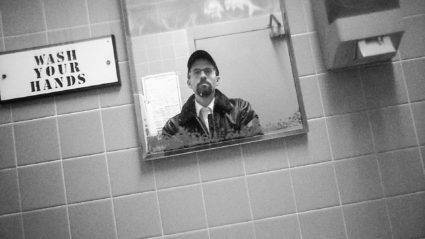
Authorities had issued an arrest warrant for Busfield over allegations of misconduct from when he was working as a director…

Our February pick for the PBS NewsHour-New York Times book club "Now Read This" is Shane Bauer's "American Prison." Become a member of the book club by joining our Facebook group, or by signing up to our newsletter. Learn more about the book club here.
As Shane Bauer began to write about his time working undercover as a prison guard in Louisiana's Winn Correctional Center, he was careful not to remind readers of one fact about himself: He had once been a prisoner in Iran.
"I feared that emphasizing my time as a prisoner would have made it harder for the average reader to relate," Bauer told the PBS NewsHour.
But the author of "American Prison" found that there were times when it felt helpful to use and recall his past experience, such as when he, working as a guard, discovered a contraband phone during an inspection and had to decide what to do with it. Bauer said taking the phone to a supervisor was a significant transition for him — despite sympathizing with prisoners who sought connection with the outside world, "I established that I was a guard that played by the rules."
"Power struggles in prison are sometimes overtly violent, but mostly they are psychological and subtle," he said.
Read more of Bauer's insights about this passage from his book, highlighted in yellow below.
In the middle of the morning, Miss Price tells us to shake down the common areas. I follow one of the two COs into a tier and we do perfunctory searches of the TV rooms and tables, feeling under the ledges, flipping through a few books. I bend over and feel around under a water fountain. My hand lands on something loose. I get on my knees to look. It's a smartphone. I don't know what to do–do I take it or do I leave it? My job, of course, is to take it, but as a former prisoner, I suddenly feel like the worst kind of snitch. It is one thing to play the role of a turnkey, but how can anyone who has been locked up deliberately take from someone the little bit of freedom he has managed to carve out for himself–his ability to contact the outside world unsurveilled, to access the internet, to slip away from the totalitarian control of prison? Sure, the inmate might use it to help bring drugs into the prison, but do I care? When I was locked up, I hoarded antianxiety pills in hopes of an occasional night of blissful detachment, and I would have died for a joint to smoke or anything to take me away from that place.
But the question of whether or not to take the phone is also a practical one. I know by now that being a guard is only partially about enforcing the rules. Mostly it's about learning how to get through every day safely, which requires that decisions like these be weighed carefully. A prisoner is watching me. If I leave the phone, everyone on the tier will know. I will win inmates' respect. But if I take it, I will show my superiors I am doing my job. I will alleviate some of the suspicion they have of every new hire. "Those ones who gets along with 'em– those are the ones I really have to watch," SORT commander Tucker told us. "There is five of y'all. Two and a half are gonna be dirty." If I take the phone, they will assume I'm not selling them. If they assume I'm not bringing in contraband, they will pay less attention to me. If they pay less attention, I won't blow my cover.
I take the phone.
Miss Price is thrilled. The COs couldn't care less. The shift supervisor calls the unit to congratulate me. I loathe myself. When I do count later, each inmate on that tier stares at me with the meanest look. Some step toward me threateningly as I pass.
Sustain our coverage of culture, arts and literature.